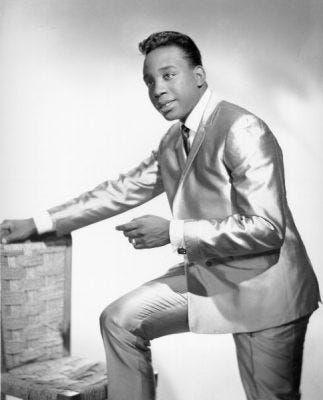Indeed I Do
Roses in the Rain #2: "Do I Love You (Indeed I Do)" (2022)
Frank Wilson joined the team at Motown in 1963, first helping staff their Los Angeles office before relocating to Detroit to write and produce. He worked with Stevie Wonder, the Temptations, Marvin Gaye, the Four Tops. He helped shepherd a late-sixties renaissance for Diana Ross and the Supremes, including “Love Child” and “Stoned Love.” In 1976, he left Motown to become a minister and gospel music producer. He died in 2012 at age 71.
He also wrote and sang one of the rarest and most coveted soul singles ever. “Do I Love You (Indeed I Do)” was cut in 1965 for Motown’s subsidiary label Soul. There were 250 demo copies of the single produced in advance of a December 23, 1965 release. Then…nothing. “At least two, and maybe as many as five, copies survive,” according to Wikipedia, one of which reportedly remains in Berry Gordy’s personal collection. As Wilson recalled to writer Andy Rix:
“I went to Detroit, and I hadn’t been in town more than a week,” Frank said. “We were standing backstage at the Fox Theater, [where] they were having a Motown Revue, and [Berry] said, ‘Frank, now you know I’m getting ready to release this record on you. We’re excited about it. But I want to ask you a question. Do you really want to be an artist, or do you want to be a writer and a producer?’ And it was right then and there I told him I wanted to be a writer and a producer. And it was decided that he would not release that record on me.”
The Northern Soul movement in England somehow rescued the song from obscurity, and it became one of their key anthems, an ideal distillation of the vibe they tirelessly sought night after night in clubs like Wigan Casino. Owing to the resurgence in popularity, Motown reissued the single in the UK in 1979 and again in 2004. It’s since featured on CD via several different Motown-produced compilations.
Back to Frank Wilson. If you search the song on YouTube, one of the first hits is a shaky video of Wilson lip-syncing to the tune in the late 90s. Northern Soul historian, DJ and producer Ian Levine found Wilson and cultivated a friendship with him, leading to both the home video he filmed and Wilson’s sole live appearance to perform the song in front of a couple thousand Northern Soul fans in England. It’s incredible.
Why this song? Why did this one cut somehow survive near-extinction to become the center piece of a musical movement and the lead single from Bruce Springsteen’s late-career soul covers album?
It’s survived because it’s perfect. I’m not sure there’s any other way to describe it. If you have any affection in your heart for the sounds of the sixties, for Motown, for soul and R&B, or just for the sheer expression of joy, you will love it.
Bruce’s version is good. It’s amazing that he’s chosen to include it and recognize not just a great lost soul cut, but a great lost soul singer and songwriter in Frank Wilson. But for the real stuff, you gotta go back to the source.
Imagine that this song—this shining thing—has sat near the bottom of the dustbin of history for decades. Hear Wilson’s vocal, and hear the sound of a man with his entire life in front of him and countless songs in his heart. Consider that only the vagaries and disappointments of record label politics kept him from perhaps becoming one of the great soul performers. He records one single, and THIS is it. His one shot, and he blows the target into bits from the center on out.
Listen to the Boss today and think about Frank Wilson, decades after this singular moment has come and gone, standing in front of an adoring crowd and sounding exactly as he did in the prime of his youth. I can’t imagine that feeling—putting something into the world, watching it vanish, and then hearing it sung back at you with nothing but devotion.


Loved this song for years, as you rightly said, it was our 🇬🇧 Notrthern Soul movement that championed this legend of a song. Thank you